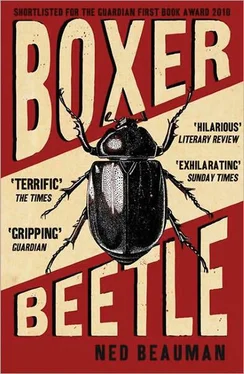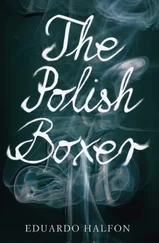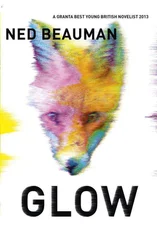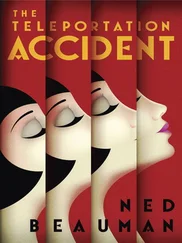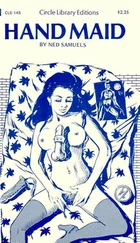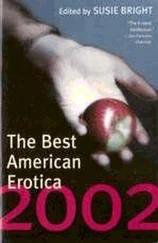Back at the Claramore Hotel, I had been almost sure I was going to die. After all, as soon as I wasn’t useful to the Welshman any more he would stub me out under his heel, and we’d been hunting around for ages without finding even a spectre of a clue. (Certainly, there was no evidence for the Welshman’s contention that Seth Roach was buried somewhere in the grounds.) Finally, though, we wandered into the bar, expecting it to be as thoroughly corporatised as the rest of the old house, only to discover that the original bookshelves had been retained, in the brochure’s words, as an ‘evocative period feature’, much like the framed archive newspaper clippings about the murder of Julius Morton. While a crowd from a marketing convention chatted over their mid-morning tomato juice, I searched through a shelf of heavy marbled visitors’ books which went all the way back to the nineteenth century. And that — just as Batman, the world’s greatest detective, probably would have done it — was how we learnt that somebody called ‘T.S.’ from ‘Roachmorton, Berkshire’ had paid a visit to Claramore every summer from 1951 to 1999. Back then, of course, I hadn’t heard of Roachmorton and I didn’t know it had anything to do with Philip Erskine, but the Welshman knew all that, along with the name of Evelyn Erskine’s fugitive maid.
First, we tried directory enquiries. But Tara Southall was still, in theory, wanted for murder, so she plainly couldn’t be living there under her real name. Indeed, there was no reason to think she was even still alive. Still, it was the closest we had to what on television they call a lead, so we left the hotel and set off east down the motorway to Roachmorton.
On the way, it occurred to me that if Tara Southall was really living in her mistress’ brother’s town, then, for some reason that was so far unfathomable, Philip Erskine himself must have pulled some strings to put her there. I knew from my late great-aunt, who lived in Cumbernauld, that when someone involved in a New Town pulled some strings to get a friend or a relation a house, then the friend or relation would be among the very first residents to move in. And the very first residents to move in would all, for obvious reasons, have been put in the same little district. So if we could identify that district, we might be able to find out if there were any nonagenarian women who had been living there ever since the town’s original designation. To find all this out would probably take a bit of what hackers call ‘pretexting’ — which was far beyond me, but not, I expected, beyond the Welshman; and indeed he had only been in the office of Roachmorton’s junior housing manager for ten minutes before he came back out to the town hall’s car park, where I was still handcuffed to the steering wheel of the car, and told me that there was a ninety-one-year-old called Tara Smith who had lived opposite Galton Primary School for forty-seven years. (There had been no more opportunities to escape, and I hadn’t stalled the Welshman for long enough to give the police time to arrive at Claramore. To be honest, for much of the time I had forgotten that I was even supposed to be stalling him — more than once I caught myself taking pleasure in the progress of our investigation, as if we were partners, not captor and captive. I think he may genuinely have been impressed with some of my insights. I don’t know. Anyway, afterwards I had hoped there was at least a chance that the police might have been able to track his car on motorway CCTV, or something like that, but they weren’t waiting for us when we got to Roachmorton. Perhaps Stuart was so childishly overexcited to be part of a real adventure, I thought, that they hadn’t believed him when he called?)
‘Are you Tara Southall?’ said the Welshman when a woman opened the pink front door. It was about four o’clock.
‘Yes,’ she said. ‘Who are you? And what’s that smell?’ She wore her hair long, and the tall masts of her cheekbones saved the rigging of her face from the androgyny of the very old. Behind us were faint playground noises.
The Welshman had told me, for once, to do most of the talking, because there was something about my cravenness to which he thought an old woman would probably warm. ‘My name’s Kevin, and this is, er, my friend. We’re here because we hoped you might be kind enough to tell us something about Seth Roach. And that smell is me, I’m afraid. It does linger for a bit, but after I’ve gone you can use one of those sprays.’
‘You know, it’s been years since anyone called me by my right name. Southall. No one since Battle passed over. Didn’t think anyone else knew.’
Inside, she sat us down and made tea. The room smelt of slightly sour milk and there was a skulk of little porcelain foxes on the mantlepiece. The first thing I could think to say was, ‘We were at Claramore earlier today.’
‘I used to go back every year until my back got too bad to sit on the train. Wish it would burn down.’
‘What happened there?’
‘A lot happened there.’
‘But what happened in 1936?’
She looked surprised. ‘What do you mean? I thought you must have found out. I thought that was how you found me, finally.’
‘We hardly know anything.’
‘Well, you know about poor old Morton.’
‘Yes.’ I’d read the newspaper clippings.
‘Bruiseland did it. I never found out why. I was tucked up in bed when it happened.’
William Erskine, Tara went on to explain, had woken her up at about two in the morning, stood there while she got dressed, and brought her quietly down to the library, where Bruiseland and Alex Godwin were already waiting. There was blood everywhere. The two servants were told that they were going to have to leave the house and go to London and live together under different names. They would be allowed to take all their things with them, along with some jewellery which they shouldn’t sell straight away. If they made trouble, they would certainly both be hanged for the murder of Julius Morton.
Tara, frightened and confused, had worked up the courage to say that she would rather go separately from Godwin, but Erskine explained that they weren’t to be allowed to live apart in case either of them should decide to tip off the police anonymously about the other, and, since they had clearly been plotting to elope anyway, it shouldn’t be any hardship. Godwin looked delighted. Erskine went upstairs to pack their bags for them, then came back down, put them in the car and drove them all the way to London, emphasising several times on the way that Bruiseland and he knew every judge and senior policeman in Hampshire. When they arrived, he gave them money for a couple of weeks in a boarding-house until they could find new jobs and a place to live, then set off back to Claramore, where he planned to arrive before dawn. But it was too late to find a room, so they decided to skipper in a park — except that Godwin immediately tried to force himself on Tara, rubbing her thighs with fistfuls of damp soil as he did so, and she fled with nothing but the clothes she was wearing. After walking until her heels blistered she arrived at the Garlick house in Kensington, outside which she waited until she saw Evelyn’s friend Caroline going out later that morning. Tara ran up to Caroline and begged her to get a message to Evelyn about where she was. She wouldn’t explain any more because she was terrified of retribution from Erskine and Bruiseland.
‘So that was how I ended up back in London. For years I was still living in a little flat in Spitalfields, calling myself Tara Smith. I even met a lad during the war and we got engaged, but he found out about who I was, or he nearly did, and I had to break it off. He wasn’t even snooping. It was just bad luck. Anyway, by the time this awful place got built old Lord Erskine had copped it, so Evelyn came to me and asked me if I wouldn’t rather live somewhere a bit nicer. She said it was something to do with her brother, but it might still be all right. She didn’t know any better and neither did I, so I said yes, and she wrote a letter to her brother, and he got me a house. Left all the friends I’d made, moved here. Regretted it ever since.’ She seemed relieved to have told the story.
Читать дальше
